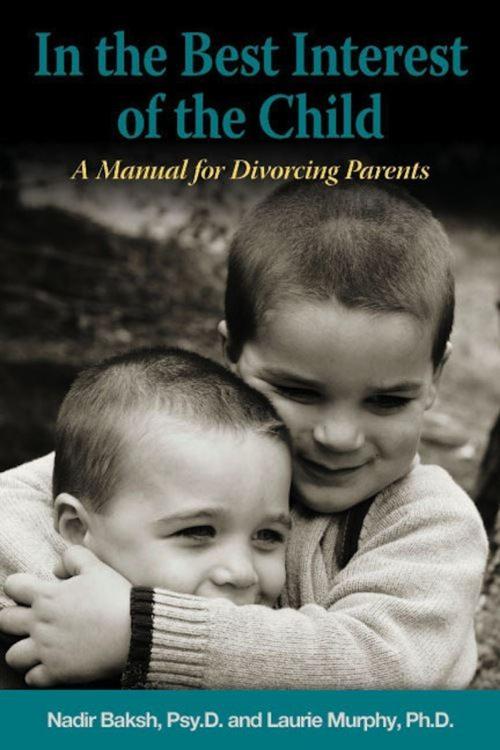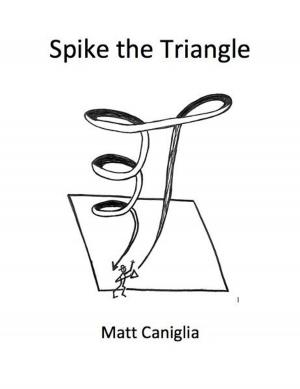In the Best Interest of the Child
Nonfiction, Family & Relationships, Family Relationships, Divorce, Health & Well Being, Self Help, Self Improvement| Author: | Nadir Baksh, Psy.D., Laurie Elizabeth Murphy, R.N., Ph.D. | ISBN: | 9781456602345 |
| Publisher: | eBookIt.com | Publication: | April 17, 2011 |
| Imprint: | eBookIt.com | Language: | English |
| Author: | Nadir Baksh, Psy.D., Laurie Elizabeth Murphy, R.N., Ph.D. |
| ISBN: | 9781456602345 |
| Publisher: | eBookIt.com |
| Publication: | April 17, 2011 |
| Imprint: | eBookIt.com |
| Language: | English |
This book is a manual for parents who are divorcing. Written by a licensed clinical forensic psychologist and a Ph.D.nurse/counselor its purpose is to help parents save their children unnecessary anguish throughout the divorce process. The advice and direction contained here are eminently practical-detailing what adults can expect from a custody battle; what they will encounter in themselves and in their children (emotionally physically mentally) during divorce; helping parents to make sense out of their children's questions; offering guidance in making decisions for themselves and their kids; and explaining the ultimate importance of putting the child's needs first. What makes this book different and invaluable is that the authors refuse to take a sugar-coated or willy-nilly approach. They have witnessed firsthand too much pain an suffering in families during divorce to hold back their strong direct words and warnings. "We are not afraid to take a stand" they declare up front. "In fact we believe it is our duty to underscore the needs of your children so they don't get lost or disappear underneath legal paperwork." While they fully understand that adults do not set out to cause damage to their children they also know that any divorce if not handled properly will absolutely cause serious problems to children. Such "proper handling" must include a strategically-planned blueprint that maps out a child's need for emotional health and well-being. In The Best Interest Of The Child guides the divorcing adults in the drafting of such a blueprint. Without it they plead "your children's lives will quickly stagnate or suffocate in the mire and muck created by spousal mud-slinging and attorney-posturing." The tone of the book while uncompromising also generates strong credibility for the author's words and easily inspires confidence in their readers. Years of experience as therapists and family counselors allow the authors to present their material with authority sanity and genuine wisdom. Topics covered include: what to expect when you are divorcing; the stress and fear that children take on; the need for extra vigilance and care toward children; softening or preventing the custody "battle"; the hidden needs of children; and dealing with an uncooperative spouse.
This book is a manual for parents who are divorcing. Written by a licensed clinical forensic psychologist and a Ph.D.nurse/counselor its purpose is to help parents save their children unnecessary anguish throughout the divorce process. The advice and direction contained here are eminently practical-detailing what adults can expect from a custody battle; what they will encounter in themselves and in their children (emotionally physically mentally) during divorce; helping parents to make sense out of their children's questions; offering guidance in making decisions for themselves and their kids; and explaining the ultimate importance of putting the child's needs first. What makes this book different and invaluable is that the authors refuse to take a sugar-coated or willy-nilly approach. They have witnessed firsthand too much pain an suffering in families during divorce to hold back their strong direct words and warnings. "We are not afraid to take a stand" they declare up front. "In fact we believe it is our duty to underscore the needs of your children so they don't get lost or disappear underneath legal paperwork." While they fully understand that adults do not set out to cause damage to their children they also know that any divorce if not handled properly will absolutely cause serious problems to children. Such "proper handling" must include a strategically-planned blueprint that maps out a child's need for emotional health and well-being. In The Best Interest Of The Child guides the divorcing adults in the drafting of such a blueprint. Without it they plead "your children's lives will quickly stagnate or suffocate in the mire and muck created by spousal mud-slinging and attorney-posturing." The tone of the book while uncompromising also generates strong credibility for the author's words and easily inspires confidence in their readers. Years of experience as therapists and family counselors allow the authors to present their material with authority sanity and genuine wisdom. Topics covered include: what to expect when you are divorcing; the stress and fear that children take on; the need for extra vigilance and care toward children; softening or preventing the custody "battle"; the hidden needs of children; and dealing with an uncooperative spouse.















